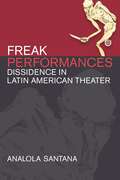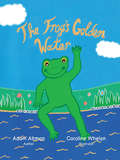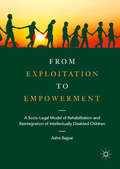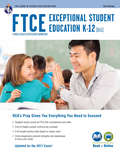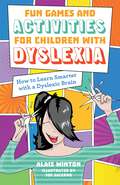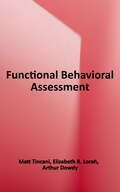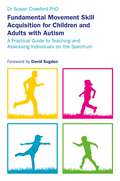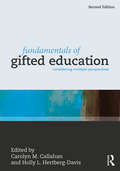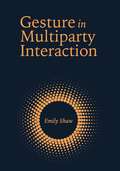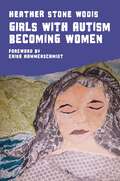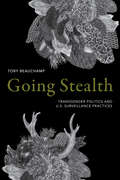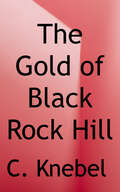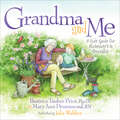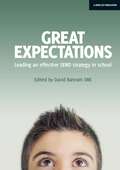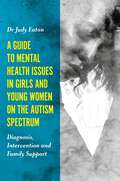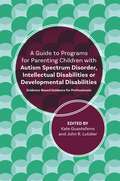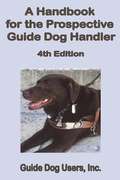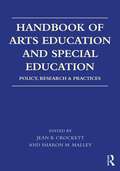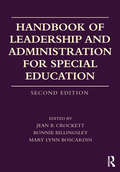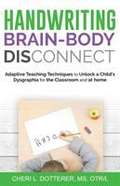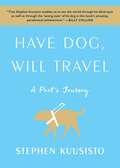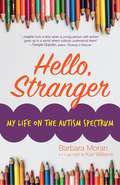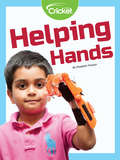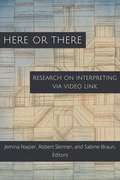- Table View
- List View
Freak Performances: Dissidence in Latin American Theater
by Analola SantanaThe figure of the freak as perceived by the Western gaze has always been a part of the Latin American imaginary, from the letters that Columbus wrote about his encounters with dog-faced people to Shakespeare's Caliban. The freak acquires greater significance in a globalized, neoliberal world that defines the "abnormal" as one who does not conform mentally, physically, or emotionally and is unable or unwilling to follow the economic and cultural norms of the institutions in power. Freak Performances examines the continuing effects of colonialism on modern Latin American identities, with a particular focus on the way it has constructed the body of the other through performance. Theater questions the representations of these bodies, as it enables the empowerment of the silenced other; the freak as a spectacle of otherness finds in performance an opportunity for re-appropriation by artists resisting the dominant authority. Through an analysis of experimental theater, dance theater, performance art, and gallery-based installation art across eight countries, Analola Santana explores the theoretical issues shaped by the encounters and negotiations between different bodies in the current Latin American landscape.
The Frog’s Golden Water
by Adam Altman Caroline WhelanSkippy has enjoyed swimming in the pond's golden water his entire life. But now the golden sparkle has disappeared, so Skippy and his friends must find out what happened and return to pond to its former splendor. Come join Skippy on his adventure of discovery in his charming story.
From Exploitation to Empowerment: A Socio-Legal Model of Rehabilitation and Reintegration of Intellectually Disabled Children
by Asha BajpaiThis book presents the outcomes of a field action project at the Tata Institute of Social Sciences (TISS). Project Chunauti (English translation: Project Challenge) focused on a group of intellectually disabled, orphan children who were survivors of abuse, exploitation and neglect, and describes their journey toward empowerment. It offers a vision and a reproducible, adaptable model for rehabilitation that can foster the social re-integration of intellectually disabled orphans at institutions. As the implementation of laws is especially important for vulnerable groups, the book also outlines a socio-legal approach that not only impacts the children directly, but can also bring about policy level reforms.Project Chunauti was born out of the need to explore options for these children and to set standards for their care, protection, rehabilitation and social re-integration. The core objectives of the project were to provide support and services, including counseling, education, life skills and vocational skills training, as well as medical and psychiatric support to help them overcome the trauma of abuse and exploitation. Its further goal was to train the staff of state-run homes and state authorities, helping them prepare and implement care plans and rehabilitation, combat child sexual abuse and malnutrition, employ positive disciplining, and better understand disabilities. The book also draws on the Project team’s experiences of rolling out the replication process in Maharashtra. This book highlights the role of the courts, media and other stakeholders in the journey towards empowerment and justice. It is a combination of social-work methods, application and implementation of law and legal advocacy, as well as best practices for protecting children’s rights and developing rehabilitation and re-integration projects for intellectually disabled, orphaned children in India. The interventions detailed here provide a reproducible, adaptable model of intervention for children in institutional care across the country.
FTCE Exceptional Student Education K-12 (FTCE Teacher Certification Test Prep)
by Nancy Ann Tattner Maryann Gromoll Dr Ken SpringerREA's FTCE Exceptional Student Education K-12 Test Prep with Online Practice TestsGets You Certified and in the Classroom - for 2018-2019 and Beyond!Nationwide, more than 4 million teachers will be needed over the next decade, and all must take appropriate tests to be licensed. REA gets you ready for your teaching career with our outstanding library of Teacher Certification test preps. Fully updated to align with the Sept. 2017 exam changes, REA’s test prep is designed to help teacher candidates master the information on the FTCE Exceptional Student Education K-12 exam and get certified. It's perfect for teacher education students and career-changing professionals who are seeking certification in Florida to teach students with special needs. Written by Florida education experts, our complete study package contains an in-depth review of all the competencies tested on the FTCE Exceptional Student Education K-12 exam, including knowledge of foundations of exceptional student education, knowledge of assessment and evaluation, knowledge of instructional practices in exceptional student education, knowledge of the positive behavioral support process, knowledge of multiple literacies and communication skills, and knowledge of the transition process. . Two full-length online practice exams run under timed-testing conditions and provide automatic scoring and diagnostic feedback on every question to help students zero in on the topics and types of questions that give them trouble now, so they’ll be prepared on test day.The book includes the same two practice tests that are offered online, but without the added benefits of detailed scoring analysis and diagnostic feedback. This complete test prep package comes with a customized study schedule and REA's test-taking strategies and tips.This test prep is a must-have for anyone who wants to teach special needs students in Florida!
Fun Games and Activities for Children with Dyslexia: How to Learn Smarter with a Dyslexic Brain
by Alais Winton Joe SalernoDyslexic learner and teacher Alais Winton shows the positives of being dyslexic, and makes learning (and even spelling!) fun, with games and activities to make school learning simple. An inventive and practical book for children aged 7 to 13 who have been identified as having dyslexic tendencies, this book contains practical and creative activities for kids and teens to use, such as Spelling Sculptures and Hear it, Sing it, Beat it! The games and activities use the four different learning styles that work best with dyslexics - thinking in pictures, in movement, in music or socially. With funny cartoons, which appeal to visual thinkers, and a section with advice on how parents and guardians can aid learning, this is an essential toolkit for any dyslexic child.
Functional Behavioral Assessment
by Matt Tincani Elizabeth R. Lorah Arthur DowdyDescribes how to conduct functional behavioral assessment (FBA) as an information-gathering process to develop successful function-based intervention plans for children and youth with autism spectrum disorder (ASD)
Fundamental Movement Skill Acquisition for Children and Adults with Autism: A Practical Guide to Teaching and Assessing Individuals on the Spectrum
by Susan Crawford David SugdenThis innovative manual sets out advice on fundamental movement skill acquisition (FMS) and its benefits for improving physical, verbal and social skills for people with Autistic Spectrum Disorder (ASD). Improving FMS can help prevent long term health issues, and increase opportunities for social engagement and independence. The book explores the basic skills of movement (running, catching, throwing, and balance) and how to observe, teach and assess FMS in children and adults with ASD. There are sections on how to develop and implement a programme for individuals to guide their personal development, and information on planning and tools for assessment are included. A much needed guide on how to combat impairment of FMS, the book also highlights the numerous benefits of such an approach in relation to behaviour, lifestyle, health and education.
Fundamentals of Gifted Education: Considering Multiple Perspectives
by Carolyn M. Callahan Holly L. Hertberg-DavisThe field of gifted education is characterized by a perplexing array of perspectives concerning such fundamental issues as definition, identification, curriculum, social and emotional development, and underserved populations. Fundamentals of Gifted Education provides a coherent framework for planning effective programs, providing appropriate educational services, and evaluating programs for the gifted. Parts are organized around fundamental issues confronting the field and follow a common structure: an introductory chapter that provides an overview of the theme of that part as well as guiding points and questions for the reader followed by representative point-of-view chapters written by leading experts that provide varied perspectives on the topic at hand.
Gesture in Multiparty Interaction (Gallaudet Sociolinguistics #24)
by Emily ShawGesture in Multiparty Interaction confronts the competing views that exist regarding gesture’s relationship to language. In this work, Emily Shaw examines embodied discourses in American Sign Language and spoken English and seeks to establish connections between sign language and co-speech gesture. By bringing the two modalities together, Shaw illuminates the similarities between certain phenomena and presents a unified analysis of embodied discourse that more clearly captures gesture’s connection to language as a whole. Shaw filmed Deaf and hearing participants playing a gesture-based game as part of a social game night. Their interactions were then studied using discourse analysis to see whether and how Deaf and hearing people craft discourses through the use of their bodies. This volume examines gesture, not just for its iconic, imagistic qualities, but also as an interactive resource in signed and spoken discourse. In addition, Shaw addresses the key theoretical barriers that prevent a full accounting of gesture’s interface with signed and spoken language. Her study pushes further the notion that language is fundamentally embodied.
Girls with Autism Becoming Women
by Heather Wodis Erika HammerschmidtThis insightful book investigates the experiences of seven women with autism as they transition from childhood to adulthood, and how they make sense of that journey. Taken from the autobiographies of women including Liane Holliday-Willey and Temple Grandin, these accounts shine a light on issues unique to women with autism. Heather Stone Wodis provides a detailed and thoughtful exploration of their common experiences, and each story offers a new perspective that illuminates the diagnosis from a different angle. This is a fascinating look at how generational differences, such as access to the internet, can provide more avenues toward self-expression, political mobilization, and advocacy. It also explores the idea that, no matter the era, the unyielding support of family and a diagnosis in childhood can help girls with autism transition toward adulthood.
Going Stealth: Transgender Politics and U.S. Surveillance Practices
by Toby BeauchampIn Going Stealth Toby Beauchamp demonstrates how the enforcement of gender conformity is linked to state surveillance practices that identify threats based on racial, gender, national, and ableist categories of difference. Positioning surveillance as central to our understanding of transgender politics, Beauchamp examines a range of issues, from bathroom bills and TSA screening practices to Chelsea Manning's trial, to show how security practices extend into the everyday aspects of our gendered lives. He brings the fields of disability, science and technology, and surveillance studies into conversation with transgender studies to show how the scrutinizing of gender nonconformity is motivated less by explicit transgender identities than by the perceived threat that gender nonconformity poses to the U.S. racial and security state. Beauchamp uses instances of gender surveillance to demonstrate how disciplinary power attempts to produce conformist citizens and regulate difference through discourses of security. At the same time, he contends that greater visibility and recognition for gender nonconformity, while sometimes beneficial, might actually enable the surveillance state to more effectively track, measure, and control trans bodies and identities.
The Gold of Black Rock Hill (Decodable Chapter Books for Kids With Dyslexia)
by C. KnebelWith a long lost map, Big Dan and his ship hands are off on their biggest quest of all: to get the gold of Black Rock Hill. But odd things are happening on the ship. And ship cat Dex spots that two bad ship hands are plotting a scam to get the gold. Can Dex and his new pal Mist stop the scam?
Grandma and Me: A Kid's Guide for Alzheimer's & Dementia
by Beatrice Tauber Prior Mary Ann DrummondA beautiful storybook that helps children understand their grandparent&’s challenges, written by a nurse and a psychologist. The authors of Grandma and Me have combined their years of clinical experience to create a truly engaging, yet informative book for young children on the topics of Alzheimer&’s and dementia. With beautiful artwork to capture children&’s attention, Grandma and Me provides a gentle, age-appropriate portrait of Alzheimer&’s disease in the context of a loving relationship between grandparent and grandchild—and provides tools that will help children continue to have a relationship with their loved one despite the disease. Grandma and Me addresses a difficult topic with compassion and understanding, and allows families to successfully navigate the journey ahead.
Great Expectations: Leading An Effective Send Strategy In School
by David BartramA selection of essays from leading educationalists and school leaders with a track record of improving outcomes for children and young people with additional needs, highlighting the significant role that school leaders play in shaping effective practice in SEND. Based on the SEND Review Guide, a national self-evaluation framework part-funded by the DfE and authored by David Bartram and Vijita Patel, downloaded by over 3000 schools, the book is divided into eight sections: Leadership; Teaching and Learning; Working with Pupils and Parents; Identification and Assessment; Monitoring and Tracking; Efficient Use of Resources; Developing Provision; Improving OutcomesEach section includes 3-4 essays. The opening essays offer a broad national perspective on the focus area, authored by a leading educationalist. The following essays, authored by school leaders from a range of educational settings including secondary, primary and special schools, highlight practical examples of how they have improved outcomes for this group of pupils, often in particularly challenging contexts. There will be a strong focus on impact of the approach.
Great Expectations: Leading An Effective Send Strategy In School
by David BartramA selection of essays from leading educationalists and school leaders with a track record of improving outcomes for children and young people with additional needs, highlighting the significant role that school leaders play in shaping effective practice in SEND. Based on the SEND Review Guide, a national self-evaluation framework part-funded by the DfE and authored by David Bartram and Vijita Patel, downloaded by over 3000 schools, the book is divided into eight sections: Leadership; Teaching and Learning; Working with Pupils and Parents; Identification and Assessment; Monitoring and Tracking; Efficient Use of Resources; Developing Provision; Improving OutcomesEach section includes 3-4 essays. The opening essays offer a broad national perspective on the focus area, authored by a leading educationalist. The following essays, authored by school leaders from a range of educational settings including secondary, primary and special schools, highlight practical examples of how they have improved outcomes for this group of pupils, often in particularly challenging contexts. There will be a strong focus on impact of the approach.
A Guide to Mental Health Issues in Girls and Young Women on the Autism Spectrum: Diagnosis, Intervention and Family Support
by Judy EatonThis book addresses the specific mental health needs of girls and young women with autism spectrum disorder (ASD). Looking at the ways autism presents differently in girls than in boys, and the mental health conditions that occur most frequently in girls with ASD, this is the essential guide for clinicians and educators on tailoring interventions and support to meet girls' needs. Describing the current assessment process for autism diagnosis, the book explains why girls are under- or mis-diagnosed, leading to later mental health issues. It outlines the types of intervention that are particularly helpful for working with girls to reduce anxiety, improve social interaction skills, and manage self-harm. The book also covers how to manage eating disorders and feeding difficulties, focusing on working with girls with sensory processing difficulties. There is advice on how to deal with the emotional impact on parents, carers and families, and the challenges they face when negotiating appropriate psychological and educational support.
A Guide to Programs for Parenting Children with Autism Spectrum Disorder, Intellectual Disabilities or Developmental Disabilities: Evidence-Based Guidance for Professionals
by John R. Lutzker Katelyn M. Guastaferro Lynn Koegel Brittany Koegel Robert Koegel V. Mark Durand Shelley Clarke Julia Strauss Laura Lee McIntyre Mallory Brown Melissa A. Mello Meagan Talbott Sally Rogers Sandy Magana Wendy Machalicek Kristina Lopez Emily Iland Susan Timmer Brandi Hawk Anthony Urquiza Ronit M. Molko-Harpaz Kenneth Fung Lee Steel Kelly Bryce Yona LunskyThis book provides a comprehensive outline of the major parent training programs for parents of children with intellectual or developmental disabilities (IDD), including Autism Spectrum Disorder. Parents or primary caregivers spend the most time with a child, and training them in behaviour management and intervention strategies is critical to improving a child's behaviour, to helping them to learn new skills, and to reduce parental stress. Authored by eminent specialists in the field and written for researchers and clinicians supporting or treating families, each chapter focuses on one of the key evidence-based parent training programs - from Incredible Years® and Positive Family Intervention through to Pivotal Response Treatment and Acceptance and Commitment Therapy. Each chapter provides a breakdown that features an introduction to the model, evidence for the model, a full description of the model, a discussion of implementation and dissemination efforts, and concluding comments. Grounded in research, this definitive overview provides the evidence and guidance required for anyone considering investing in or running a parenting program.
A Handbook for the Prospective Guide Dog Handler
by Guide Dog Users Inc.A handbook full of information for those considering getting a guide dog.
Handbook of Arts Education and Special Education: Policy, Research, and Practices
by Jean B. Crockett Sharon M. MalleyThe Handbook of Arts Education and Special Education brings together, for the first time in a single reference volume, policy, research, and practices in special education and arts education synthesized to inform stakeholders across a broad spectrum of education. This handbook encompasses arts education for students with disabilities, from pre-K through transition to postsecondary education and careers as well as community arts education, with particular attention to conceptual foundations; research-based practices; professional standards; students’ cognitive, artistic, and social growth; career education; and future directions for research and practice in special education and arts education.
Handbook of Leadership and Administration for Special Education
by Jean B. Crockett Bonnie Billingsley Mary Lynn BoscardinThe Handbook of Leadership and Administration for Special Education brings together research informing practice in leading special education from preschool through transition into postsecondary settings. The second edition of this comprehensive handbook has been fully updated to provide coverage of disability policy, historical roots, policy and legal perspectives, as well as effective, collaborative, and instructional leadership practices that support the administration of special education. It can be used as a reference volume for scholars, administrators, practitioners, and policy makers, as well as a textbook for graduate courses related to the administration of special education.
Handwriting Brain-Body Disconnect: Adaptive teaching techniques to unlock a child's dysgraphia for the classroom and at home
by Cheri L DottererThere is a misconception about dyslexia, dysgraphia, and dyscalculia. Some people use the terms interchangeably. Simply put: dyslexia is defined as difficulty with reading; dysgraphia is defined as difficulty with writing; and dyscalculia is defined as difficulty with math concepts. Each topic is much more complicated. This book is written for teachers, parents, occupational therapists transitioning to school-based practice, and other related service professionals, focusing on dysgraphia.
Have Dog, Will Travel: A Poet's Journey
by Stephen Kuusisto<P>In a lyrical love letter to guide dogs everywhere, a blind poet shares his delightful story of how a guide dog changed his life and helped him discover a newfound appreciation for travel and independence. <P>Stephen Kuusisto was born legally blind—but he was also raised in the 1950s and taught to deny his blindness in order to "pass" as sighted. Stephen attended public school, rode a bike, and read books pressed right up against his nose. As an adult, he coped with his limited vision by becoming a professor in a small college town, memorizing routes for all of the places he needed to be. Then, at the age of 38, he was laid off. With no other job opportunities in his vicinity, he would have to travel to find work. <P>This is how he found himself at Guiding Eyes paired with a Labrador named Corky. In this vivid and lyrical memoir, Stephen Kuusisto recounts how an incredible partnership with a guide dog changed his life and the heart-stopping, wondrous adventure that began for him in midlife. Profound and deeply moving, this is a spiritual journey, the story of discovering that life with a guide dog is both a method and a state of mind.
Hello, Stranger: My Life on the Autism Spectrum
by Barbara Moran Karl Williams“…Insights from a time when a young person with autism grew up in a world where nobody understood them!” – Temple Grandin, author, Thinking in PicturesBarbara Moran has never known how to be good.As a child, she made strange noises, fidgeted constantly, and licked her lips until they cracked. She had “upsets” that embarrassed and frustrated her family. Worse still, she developed friendships with inanimate objects—everything from roller skates to tables to an antique refrigerator—and became obsessed with images of cathedrals.She was institutionalized, analyzed, and marginalized, cast aside as not trying hard enough to fit in.But after almost forty years, Barbara was given an answer for her inability to be like, and to connect with, other people: autism.Hello, Stranger is the story of a misunderstood life that serves as an eye-opening call for compassion. Bracingly honest, Barbara describes the profound loneliness of being abandoned and judged while also expressing her deep yearning simply to be loved and to give love.Hello, Stranger is a challenge to every reader to see the beauty and the humanity present in every individual.“An extraordinary look at autism from the inside – by turns heartbreaking, uplifting, illuminating, witty, and wise.” – Steve Silberman, author, NeuroTribes: The Legacy of Autism and the Future of Neurodiversity
Helping Hands
by Elizabeth PrestonSome kids are born missing a hand or fingers, others lose them because of accidents. Find out how people are printing artificial hands on 3-D printers to help those who need a hand. They are cheap, easy to build, and really work!
Here or There: Research on Interpreting via Video Link (Gallaudet Studies In Interpret #16)
by Jemina Napier Robert Skinner Sabine BraunThe field of sign language interpreting is undergoing an exponential increase in the delivery of services through remote and video technologies. The nature of these technologies challenges established notions of interpreting as a situated, communicative event and of the interpreter as a participant. As a result, new perspectives and research are necessary for interpreters to thrive in this environment. This volume fills that gap and features interdisciplinary explorations of remote interpreting from spoken and signed language interpreting scholars who examine various issues from linguistic, sociological, physiological, and environmental perspectives. Here or There presents cutting edge, empirical research that informs the professional practice of remote interpreting, whether it be video relay service, video conference, or video remote interpreting. The research is augmented by the perspectives of stakeholders and deaf consumers on the quality of the interpreted work. Among the topics covered are professional attitudes and motivations, interpreting in specific contexts, and adaptation strategies. The contributors also address potential implications for relying on remote interpreting, discuss remote interpreter education, and offer recommendations for service providers.
